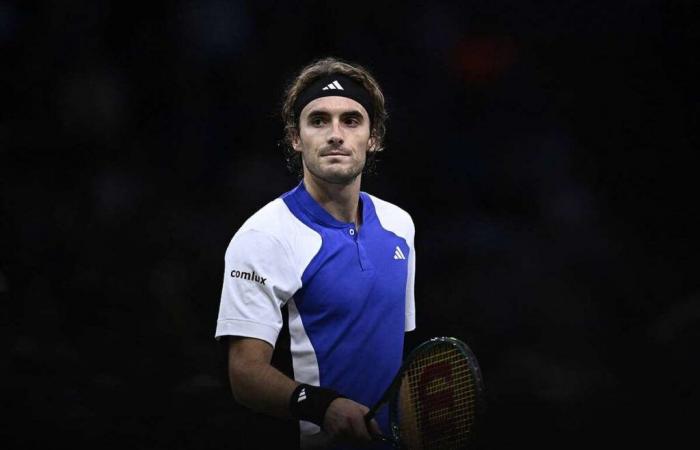Stefanos Tsitsipas, Ugo Humbert, Andy Roddick… a few days before the end of the season on the ATP circuit, many Tennis voices are speaking out to denounce the extension to two weeks of the Masters 1000, in an already busy schedule.
The most important tournaments on the circuit after those of the Grand Slam, “the two-week Masters 1000 has become a chore”launched the Greek Stefanos Tsitsipas, 12th player in the world, on Thursday on X.
“Players do not get the necessary recovery or training time”estimated the double Grand Slam finalist. Consequently, “the quality (of the game, Editor’s note) has dropped,” he judged.
In October, French tennis No. 1 Ugo Humbert had already accused the ATP, organizer of most of the tournaments on the calendar, of “never” going in the direction of the players.
“The biggest bullshit is having put the Masters 1000 over two weeks”had asserted in an interview with the media Tennis Majors the recent finalist of the Masters 1000 in Paris, one of the rare ones to be played over a week.
“They tell us that we earn more money but that’s not true, we have twice as many costs” due to the longer stay on site. And “there are a lot more guys getting injured”according to the left-hander from Metz.
Organized in March, the first two Masters 1000 of the season (Indian Wells and Miami) have long been spread over two weeks.
But what was an exception is becoming the norm, with the extension to 12 days of competition of the Masters 1000 in Rome, Madrid and Shanghai since 2023 and that planned for 2025 of the Masters 1000 in Cincinnati and Canada.
“Consistency”
Among the nine Masters 1000 of the 2025 season, only those of Monte-Carlo in the spring and Paris in the fall will retain the historic format of a week of competition.
In an assessment of these developments presented at the beginning of October, the ATP assured that the lengthening of these tournaments made it possible to bring more players into the tables (96 instead of 56), to increase their remuneration and to improve the “experience” of the spectators.
In 2023, the Masters 1000 prize pools jumped to exceed $70 million compared to $55.6 million in 2022, an increase “driven by the extension of the tables in Madrid, Rome and Shanghai”, according to the ATP.
“Bigger draws bring more money to more players, in line with the ATP's goal of increasing the number of players who can make a decent living from tennis”the court further argued.
For world No.1 Jannik Sinner, each player also remains free to play certain tournaments or not.
“You have to make choices (…) In the last two years, I skipped tournaments because I wanted to train”he said in September.
An argument contested by former world No.1 Andy Roddick, now retired from the courts.
“We are desperately trying to find space in the calendar and what do we do? We are extending (almost, Editor’s note) all the Masters 1000s to two weeks”regretted the American on Wednesday in a podcast.
However, the ATP is not the only one responsible for the embolism of the calendar.
Like the Six Kings Slam, a lucrative unofficial tournament which brought together six stars of the circuit in mid-October in Saudi Arabia (including world No. 1 and 3 Jannik Sinner and Carlos Alcaraz), exhibitions are multiplying.
A few days after the exhibition in Saudi Arabia, the title holder Novak Djokovic then Jannik Sinner withdrew from the Masters 1000 in Paris.
For tournament director Cédric Pioline, “everyone must have consistency. On the one hand we complain that there are a lot of tournaments and on the other, we do even more”, underlines the ex- World No.5.
A call for consistency mischievously joined on Thursday by the Swiss Stanislas Wawrinka, three-time Grand Slam winner.
On






